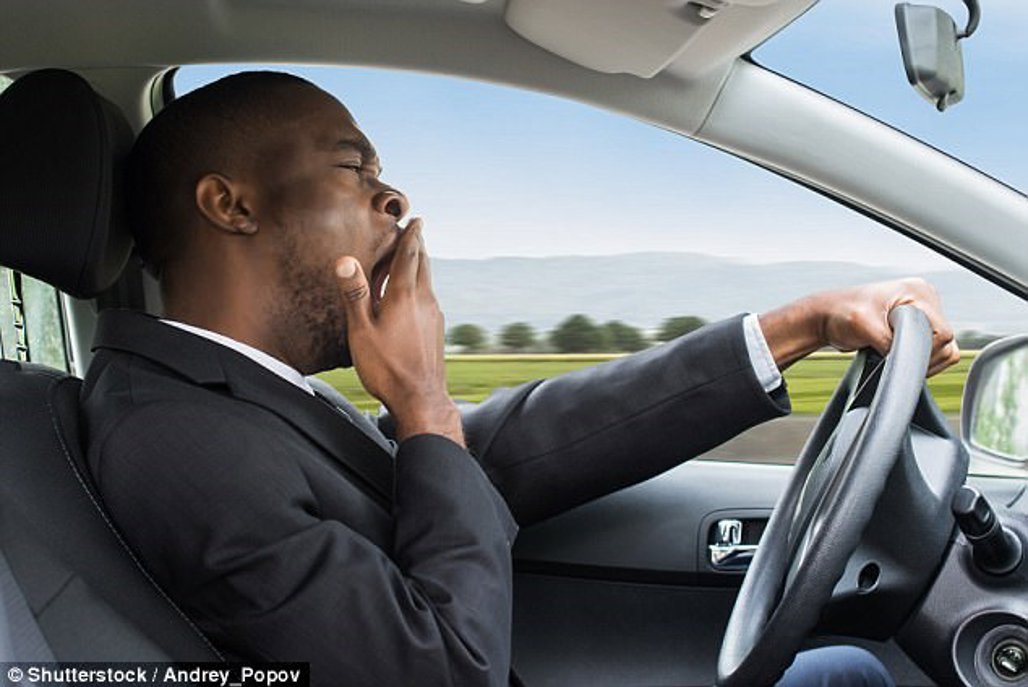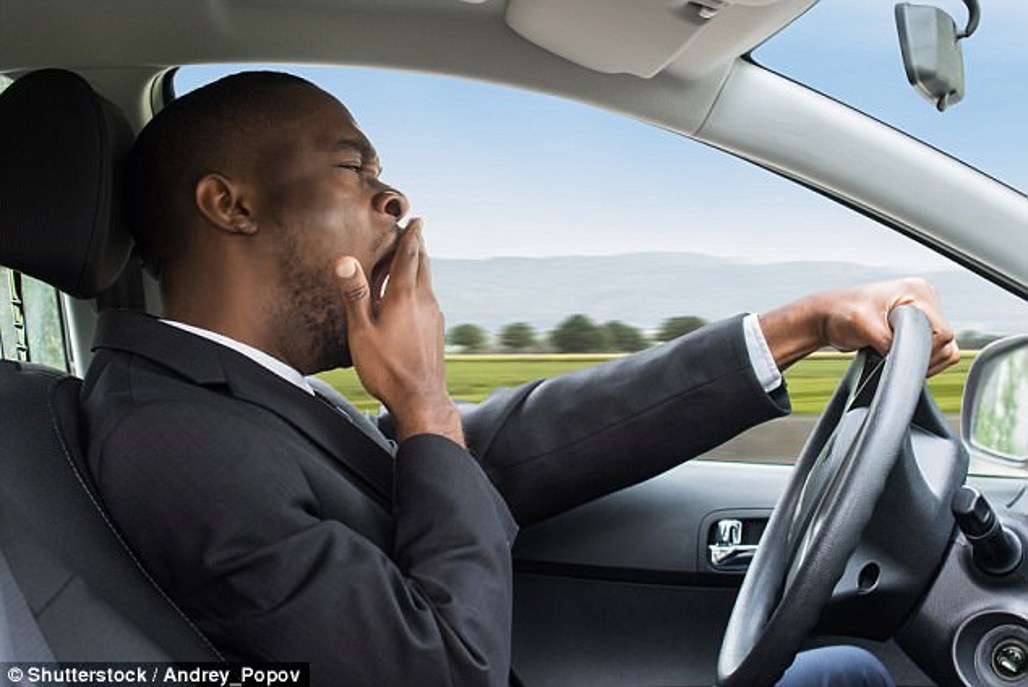Driving while sleep deprived is as bad as getting behind the wheel while intoxicated, a new study suggests.
Scientists found parts of the brain can turn themselves off in people who are tired - even if they are still awake.
Reaction times are also seriously impaired, meaning getting behind the wheel when sleep deprived could be just as dangerous as being under the influence of alcohol.
The cause of the dangerous effects of a lack of shut-eye is brain cells losing their ability to communicate.
Temporary mental lapses are now believed to occur when these cells struggle to translate visual information into conscious thought.
It means if a bunch of keys are in front of someone, they could walk past without picking them up.
Brain cells, called neurons, were found to fire more weakly and take longer to respond in a study of 12 people kept awake all night.
Neurology professor Dr Itzhak Fried, from the University of California, Los Angeles, who was involved in the study, said: 'We discovered that starving the body of sleep also robs neurons of the ability to function properly.
'This paves the way for cognitive lapses in how we perceive and react to the world around us.'
How was the study carried out?
Dr Fried led an international team studying 12 people with epilepsy, who had electrodes implanted in their brains in order to pinpoint the origin of their seizures.
Kept awake all night, the study participants were asked to categorise a variety of images as fast as possible while the electrodes recorded the firing of nearly 1,500 single brain cells in real time.
Unsurprisingly, as people got more tired, they struggled more with the task. But more interestingly, as they slowed down, their brain cells did so too.
The scientists focused particularly on the temporal lobe – the region of the brain which regulates visual perception and memory.
Lead author Dr Yuval Nir, from Tel Aviv University in Israel, said: 'We were fascinated to observe how sleep deprivation dampened brain cell activity. Unlike the usual rapid reaction, the neurons responded slowly, fired more weakly and their transmissions dragged on longer than usual.'
How does lack of sleep affect brain cells?
Lack of sleep interfered with the neurons' ability to encode information and translate visual input into conscious thought. This could raise concerns over tired commuters driving into work after failing to get enough sleep, should someone cross the road in front of them.
Dr Nir added: 'The very act of seeing the pedestrian slows down in the driver's overtired brain. It takes longer for his brain to register what he's perceiving.'
In a second finding, the researchers discovered slower brain waves in the same regions of people's brains to the failing brain cells.
The phenomenon suggests that select regions of the patients' brains were dozing, causing mental lapses, while the rest of the brain was awake and running normally.
What have older studies found?
Previous studies have linked sleep deprivation to a heightened risk of depression, obesity, diabetes, heart attacks and stroke. Now researchers want to explore what causes the brain cell communication failures behind mental lapses.
Dr Fried said: 'Inadequate sleep exerts a similar influence on our brain to drinking too much. Yet no legal or medical standards exist for identifying overtired drivers on the road the same way we target drunk drivers.'
The study is published in the journal Nature Medicine.
- Daily Mail




